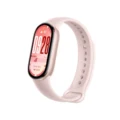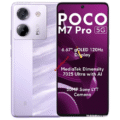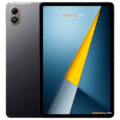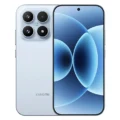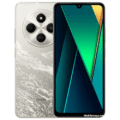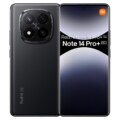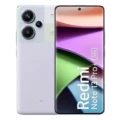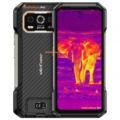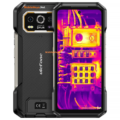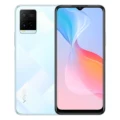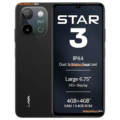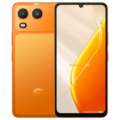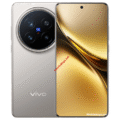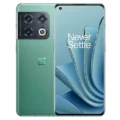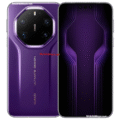Price List: Under Tk.5,000 | Tk.5001-10000 | Tk.10001-15000 | Tk.15001-20000 | Tk.20001-30000 | Tk.30001-40000 | More Mobiles
- Home
- All Mobile
- Xiaomi
- Xiaomi Poco M8
Xiaomi Poco M8
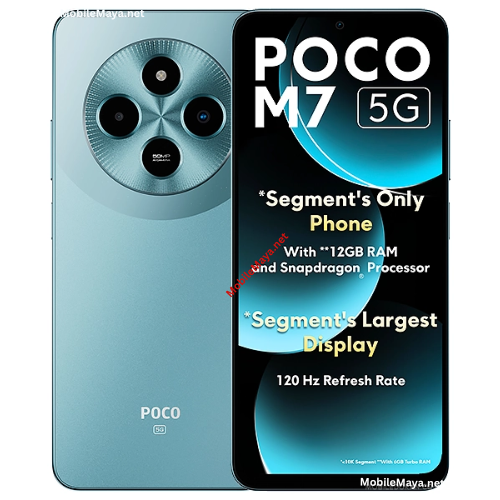

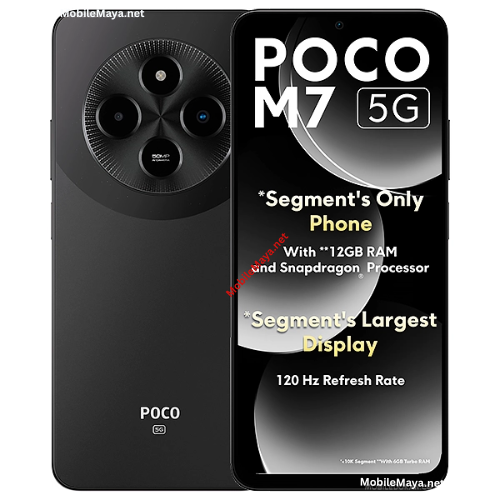
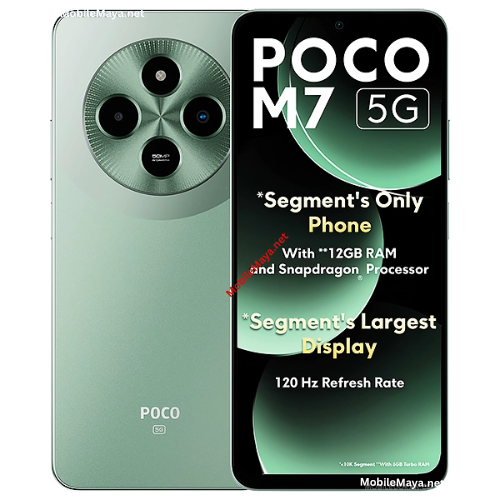
Specifications
Price in Bangladesh
| Expected Price | Coming soon |
General
| Device Type | Smartphone |
| Released | February, 2026 |
| Status | Available |
Hardware & Software
| Operating System OS => Every computer system run on a base software called Operating System (OS). Operating System controls all basic operations of the computer (such as smartphone, PDAs, tablet computers and other handheld devices). The Operating System allows the user to install and run third party applications (apps), apps are used to add new functionality to the device. | Android |
| OS Version | v15 |
| Chipset Chipset is a group of integrated circuits designed to perform one or a more dedicated functions, often with real time computing constraints, Popular smartphones are equipped with more advanced embedded chipsets that can do many different tasks depending on their programming. | Qualcomm SM4450 Snapdragon 4 Gen 2 (4 nm) |
| CPU CPU (Central Processing Unit) mostly known as processors, CPU processes instructions in order to carry out certain functions that make your device operate properly. Processors are often described as the brain of computers, smartphones and tablets, Smartphones and tablets rely on processors to carry out their every task, Processors are an incredibly important factor in selecting any type of computing device, including your smartphone. | - |
| GPU GPU (Graphics Processing Unit) is a single-chip processor designed to rapidly manipulate and alter memory to accelerate the creation of images in a frame buffer intended for output to a display, This includes things such as lighting effects, object transformations, and 3D motion. | - |
| RAM (Memory) RAM (Random Access Memory) is a type of computer memory that can be accessed randomly, any byte of memory can be accessed without touching the preceding bytes that allows information to be stored and accessed quickly from random locations. RAM is the most common type of memory found in computer systems, smartphones, tablets and other electronic devices. | 6 GB, 8 GB |
Design
| Dimensions | - |
| Weight | - |
| Colors |
Ocean Blue, Satin Black, Mint Green |
| Build Material | Glass front, glass back, plastic frame |
Display
| Display Type Display Technology => A number of display technologies and types used in mobile phones => TFT (Thin Film Transistor), IPS (In-Place Switching), OLED (Organic Light Emitting Diode), AMOLED (Active-Matrix Organic Light-Emitting Diode), Super AMOLED (an even advanced version of AMOLED), Resistive Touchscreen (Resistive touchscreens contain two layer of conductive material with a very small gap between them which acts as a resistance), Capacitive Touchsceen (Capacitive touchscreen technology consists of a layer of glass coated with a transparent conductor) | IPS LCD |
| Size | 6.88 inches |
| Resolution | 720 x 1640 pixels |
| Brightness | 600 nits (HBM) |
| Refresh Rate | 120Hz |
| HDR 10 / HDR+ support |
Rear Camera
| Camera Setup | Single |
| Main Camera | 50 MP |
| OIS | |
| Flash Flash Light => There is commonly two types of flash lights are used in camera mobile phones, LED Flash (LED flash offers lower power consumption with drive circuitry that takes up very little room, LEDs can be strobed faster than any other light source), Xenon Flash (xenon flash produces an extremely intense full-spectrum white light for a very short duration) | LED flash |
| Camera Features | HDR |
| Video | 1080p@30fps |
Front Camera
| Camera Setup | Single |
| Secondary |
8 MP |
| Video | 1080p@30fps |
Battery
| Battery Type Battery Type => Cell phones run on various kinds of batteries depending on the manufacturer, phone size or shape and features. There are basically four types of cell phone batteries => Lithium Polymer, Lithium Ion, Nickel Metal Hydride and Nickel Cadmium. | Li-Ion (Lithium Ion) |
| Placement | Non-removable |
| Capacity Battery Capacity is a measure (typically in Amp-hr) of the charge stored by the battery, and is determined by the mass of active material contained in the battery. The battery capacity represents the maximum amount of energy that can be extracted from the battery under certain conditions. | 5160 mAh |
| Quick Charging | 18W |
| USB Type-C | USB Type-C |
Storage
| Storage Capacity | 128 GB |
| USB OTG |
Network
| 2G Network |
GSM 850 / 900 / 1800 / 1900 |
| 3G Network |
HSDPA 800 / 850 / 900 / 1700(AWS) / 1900 / 2100 |
| 4G Network |
1, 2, 3, 4, 5, 7, 8, 18, 19, 20, 26, 28, 38, 40, 41, 42, 48, 66 |
| 5G Network |
1, 2, 3, 5, 7, 8, 20, 26, 28, 38, 40, 41, 48, 66, 77, 78 SA/NSA |
| SIM SIM (Subscriber Identity Module) is a small card that contains mobile network subscriber's account information. This allows the phone using the card to attach to a mobile network. The SIM card is most commonly associated with GSM and UMTS mobile networks. Moving a SIM card from one phone to another allows a subscriber to switch mobile phones without having to contact their mobile network carrier. SIM cards can also be used by a phone to store limited amounts of data, such as phone numbers and text messages. | Standard SIM |
Data
| GPRS GPRS (General Packet Radio Service) is a packet oriented mobile data service on the 2G and 3G cellular communication system's global system for mobile communications (GSM), Generally, GPRS is used for the purpose of wireless data transfer, such as sharing pictures and videos or browsing the Internet via a mobile phone connection. | |
| EDGE EDGE (Enhanced Data GSM Environment) is a wireless network technology generally considered the next step in the 2G network offers data transfer rates up to four times faster than ordinary GSM networks, Generally, EDGE is used for the purpose of wireless data transfer, such as sharing pictures and videos or browsing the Internet via a mobile phone connection. | |
| Speed | HSPA, LTE, 5G |
| Web Browser Web Browser => a web browser is a software application used to locate, retrieve and display content on the World Wide Web, including Web pages, images, video and other files, The primary function of a web browser is to render HTML, the code used to design or markup webpages. | HTML5 |
Messaging
| SMS SMS (Short Messaging Service) is a text messaging service component of phone, Web, or mobile communication systems. It uses standardized communications protocols to allow mobile phone devices to exchange short text messages over the networks. | Yes |
| MMS MMS (Multimedia Messaging Service) is a standard way to send messages that include multimedia content (audio clips, video clips and images) to and from mobile phones over wireless networks using the WAP protocol. | |
| Email Email (Electronic Mail) is a system for receiving, sending, and storing electronic messages, Similar to a letter, email is text messages that may contain files, images, or other attachments sent via the internet to a recipient by using applications and software prograps. An email address is required to receive email, and that address is unique to the user. | Yes |
| IM IM (Instant Messaging) is an exchange of text messages through a software application, it enable you to create a kind of private chat room with another individual in order to communicate in real time over the Internet. | Yes |
Connectivity
| Bluetooth Bluetooth is a wireless communications technology for exchanging data between mobile phones, headsets, computers and other network devices over short distances without wires, Bluetooth technology was primarily designed to support simple wireless networking of personal consumer devices. | 5.0, A2DP, LE |
| Wi-fi Wi-Fi is a popular wireless networking technology using radio waves to provide high-speed network connections that allows devices to communicate without cords or cables, Wi-Fi is increasingly becoming the preferred mode of internet connectivity all over the world. | Wi-Fi 802.11 a/b/g/n/ac, dual-band |
| Wi-fi Hotspot | |
| Infrared Infrared connectivity is an old wireless technology used to connect two electronic devices. It uses a beam of infrared light to transmit information and so requires direct line of sight and operates only at close range. | |
| USB | USB Type-C 2.0 |
| GPS GPS The Global Positioning System is a satellite-based radio navigation system, GPS permits users to determine their position, velocity and the time 24 hours a day, in all weather, anywhere in the world, In order to locate your position, your device or GPS receiver must have a clear view of the sky. | GPS, GLONASS, GALILEO, BDS, QZSS, NavIC |
| NFC NFC (Near field communication) is a set of standards for smartphones and similar devices to establish peer-to-peer radio communications with each other by touching them together or bringing them into proximity, usually no more than a few inches. |
Media
| FM Radio | FM radio, recording |
| Loudspeaker | Yes, with stereo speakers |
| 3.5mm Jack | Yes |
Sensors & Security
| Fingerprint Sensor |
More
| Made By | China |
Performance Tests
PROS
- Large 6.88-inch 120Hz display
- 50MP rear camera with HDR support
- Strong 5160mAh battery with 18W charging
- Affordable mid-range pricing
- Multiple RAM options (6GB / 8GB)
CONS
- 720p resolution might be low for some users
- Single rear camera limits photography versatility
- Exact dimensions and weight not yet available
Xiaomi Poco M8 Price in Bangladesh
The Xiaomi Poco M8 is an upcoming mid-range smartphone expected to arrive in Bangladesh with storage options of 128GB paired with either 6GB or 8GB of RAM. This device promises a striking balance of performance, display, and camera capabilities at an affordable price, making it ideal for budget-conscious users who still want modern features. The Poco M8 stands out with its large 6.88-inch 120Hz IPS LCD display, a 50MP main camera, 5160mAh battery, and Snapdragon 4 Gen 2 chipset. Its colorful design variants—Ocean Blue, Satin Black, and Mint Green—add to its visual appeal.
This is a mid-range device aimed at users looking for a reliable smartphone for daily tasks, social media, light gaming, and multimedia consumption.
Price & Variants
| RAM & Storage | Price (BDT) | Status |
|---|---|---|
| 6GB + 128GB | Coming Soon | Upcoming |
| 8GB + 128GB | Coming Soon | Upcoming |
Xiaomi Poco M8 Specifications
The Xiaomi Poco M8 is a mid-range smartphone featuring modern hardware and software designed for everyday use.
| Feature | Details |
|---|---|
| Model Name | Xiaomi Poco M8 |
| Release Date | October, 2025 |
| Market Availability | Available |
| Official Price | Coming Soon |
| RAM & Storage | 6GB / 8GB RAM, 128GB Storage |
Display and Design
The Poco M8 sports a 6.88-inch IPS LCD display with a resolution of 720 x 1640 pixels and 120Hz refresh rate for smooth scrolling and animations. It supports HDR10/HDR+ content with a brightness of up to 600 nits (HBM).
Design-wise, the phone features a glass front and back with a plastic frame, offering a sleek yet durable build. It comes in three color options—Ocean Blue, Satin Black, and Mint Green—making it visually appealing. Exact weight and dimensions are not yet disclosed.
Performance and Processor
Powered by the Qualcomm SM4450 Snapdragon 4 Gen 2 chipset built on a 4nm process, the Poco M8 offers efficient performance for daily tasks and light gaming. Coupled with either 6GB or 8GB of RAM and 128GB internal storage, it also supports storage expansion. The device ensures smooth multitasking, responsive UI interactions, and decent gaming performance for a mid-range smartphone.
Camera and Video
The Xiaomi Poco M8 features a single 50MP rear camera with LED flash and HDR support, capable of recording 1080p videos at 30fps. The front houses an 8MP selfie camera, also recording 1080p video. While it’s not a flagship camera setup, the Poco M8 offers reliable photography for social media and everyday use.
Battery and Charging
The Poco M8 packs a 5160mAh Li-Ion battery with non-removable design, providing long-lasting battery life. It supports 18W fast charging through a USB Type-C port, ensuring the phone charges efficiently and stays powered throughout the day.
Connectivity and 5G Support
This smartphone supports comprehensive connectivity options, including 2G, 3G, 4G, and 5G bands (SA/NSA). It offers dual SIM capability with standard SIM cards. Wireless features include Bluetooth 5.0, Wi-Fi 802.11 a/b/g/n/ac dual-band, NFC, and GPS with GLONASS, GALILEO, BDS, QZSS, and NavIC support. It also includes USB OTG, an FM radio with recording, and infrared capabilities.
Additional Features
The Poco M8 comes with a fingerprint sensor, stereo loudspeakers, and a 3.5mm headphone jack. It runs Android 15 with Poco’s MIUI skin, providing a modern software experience and useful customization options.
Reason to Buy
- Large 6.88-inch 120Hz display for smooth visuals
- Decent 50MP main camera for casual photography
- Strong 5160mAh battery with 18W fast charging
- Snapdragon 4 Gen 2 chipset for efficient performance
- Affordable mid-range pricing with 6GB/8GB RAM options
Verdict
The Xiaomi Poco M8 is a solid mid-range smartphone designed for users seeking a large display, capable camera, and long battery life without breaking the bank. Its stylish design, smooth 120Hz display, and capable Snapdragon chipset make it suitable for daily use, multimedia consumption, and light gaming. Ideal for budget-conscious buyers who want modern features.
FAQ
Q1: When will the Xiaomi Poco M8 be available in Bangladesh?
A: The phone is expected to release in October 2025.
Q2: Does it support 5G networks?
A: Yes, the Poco M8 supports multiple 5G bands with SA/NSA compatibility.
Q3: Can I expand the storage?
A: Yes, the device supports expandable storage, though the exact capacity limit is not yet disclosed.
Q4: What colors will the Poco M8 come in?
A: Ocean Blue, Satin Black, and Mint Green.
Q5: Does it support fast charging?
A: Yes, it supports 18W fast charging via USB Type-C.
Alternatives to Xiaomi Poco M8
User Reviews
Disclaimer Note
We do not guarantee that the information of this page is 100% accurate and up to date.

